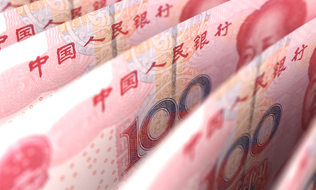

With the global economy recently experiencing some significant tailwinds, will that backdrop be enough to push emerging markets, especially Asian economies, to outperform?
Signs of stabilization are peeking through, with central banks acting as the key heroes by providing stimulus, said Eric Lascelles, chief economist at RBC Global Asset Management Inc., in a webinar on Wednesday. Long-standing policy uncertainties, whether it’s progress on Brexit or U.S.-China trade tensions, are also diminishing.
“I would stop well short of suggesting the frictions there are done, but it’s also a positive thing when the world’s two most important economies are singing from the same hymnbook.”
Read: Saudi Arabia, China A-shares to see boost in MSCI emerging market index
Indeed, while China and the U.S. have agreed on the first phase of a trade deal, the skirmishes between the two economies are far from over and will play heavily into how Asian markets perform in 2020, said Mayur Nallamala, head of Asian equities at RBC Global Asset Management.
U.S. President Donald Trump’s fickleness shouldn’t be discounted even as markets celebrate this milestone of progress, he said. “[Trump] could reverse course after the election or before the election.”
Even if Trump isn’t re-elected, there has been growing bipartisan support for the view that China represents a serious competitive threat to the U.S. economy, which needs to be mitigated one way or another, he added
As tensions continue to play out, China is likely to strengthen its trading relationships with surrounding Asian countries, choosing that route to support its growth. As a result, China’s economic health will have a heavier impact on the health of nearby emerging market economies. “It’s the largest trading partner of most Asian countries,” said Nallamala. “And 10 years ago, that was America for all large Asian countries. So there’s a big shift in where these trade flows are going.”
Read: 80% of institutional investors planning to raise allocations to China: survey
Chinese tourists heading to other Asian countries are also supporting the area’s emerging economies. While the coronavirus health scare will doubtless affect tourism, its impossible to say for how long, he noted. As well, capital allocations from Chinese investors are pouring in to their Asian neighbours. “That has been supplemented by the Belt and Road scheme that the Chinese government has put a lot of effort into. So we think, unfortunately, if the trade war remains persistent, it’s negative for Asian markets overall.”
Moving further into 2020, a major tailwind for Asian equities is that the U.S. dollar appears to be hitting its peak. “Historically, that has been very positive for emerging market and Asian equities. . . . This relationship has held in every period of dollar weakness or strength in the last 25 to 30 years,” said Nallamala.
Dollar-denominated debt held by emerging markets will also benefit from a weaker dollar, he added, making overall credit loads in emerging Asia less onerous in 2020.
Read: Are tensions between China and the U.S at trade war level yet
